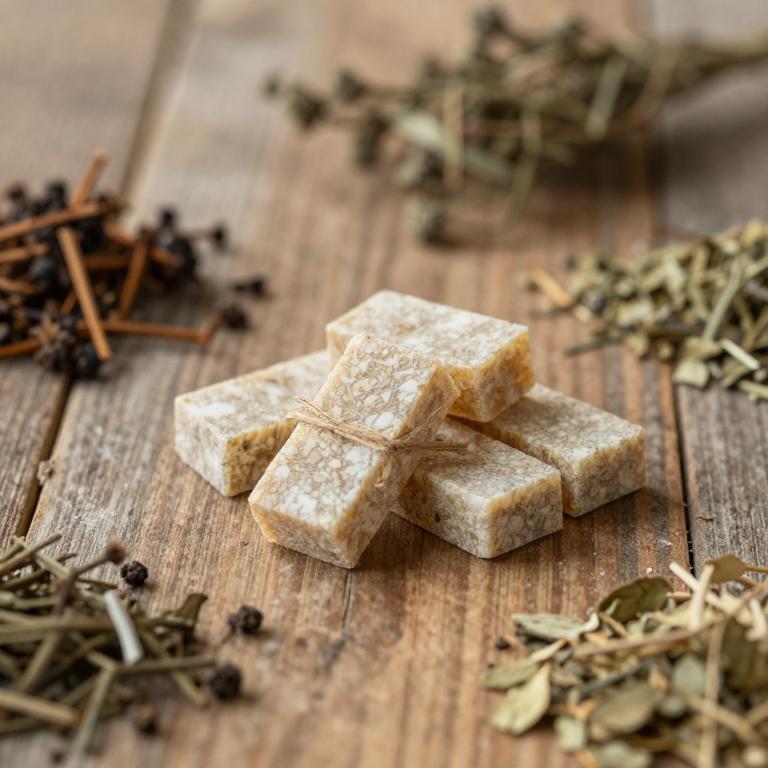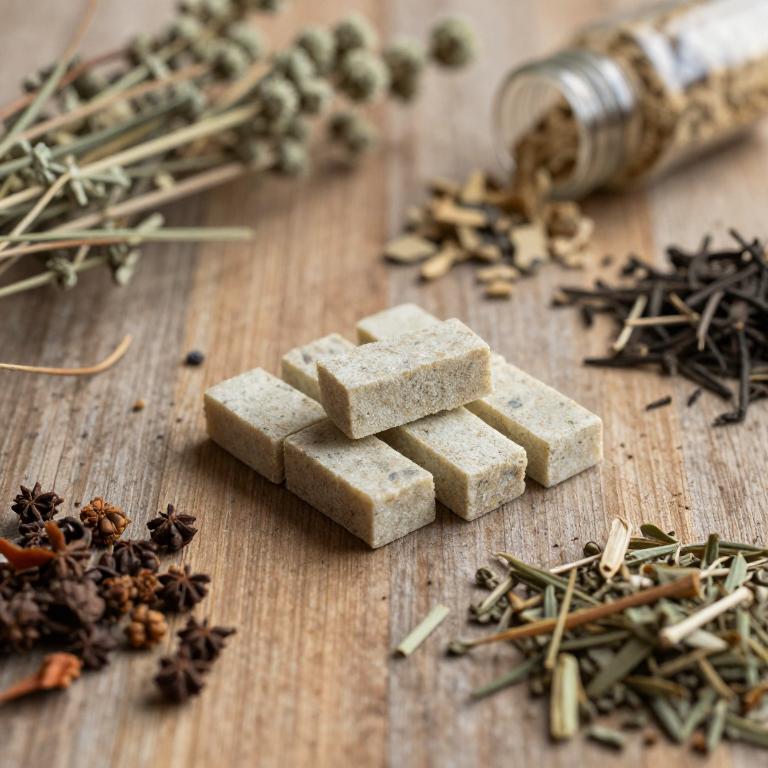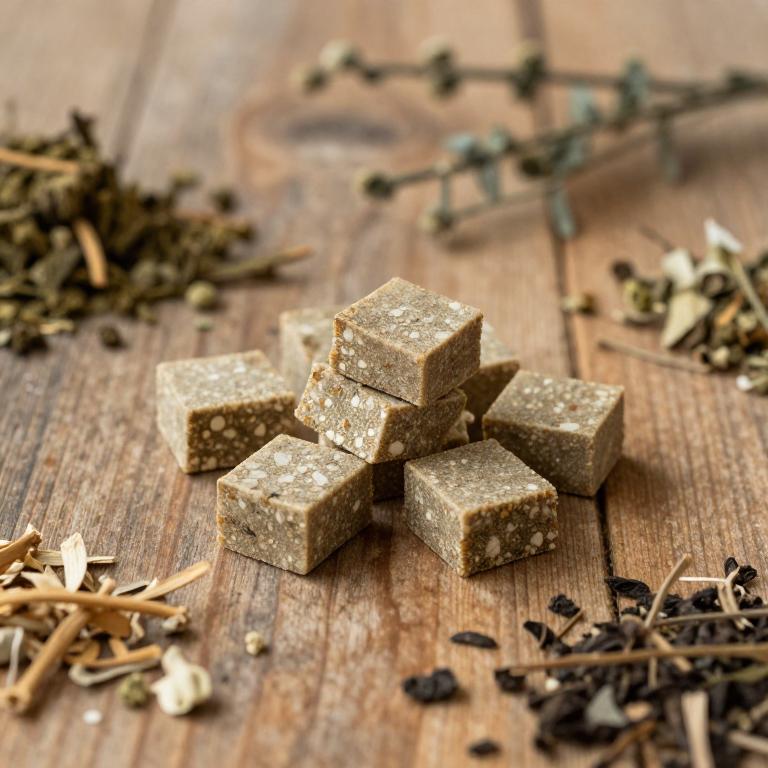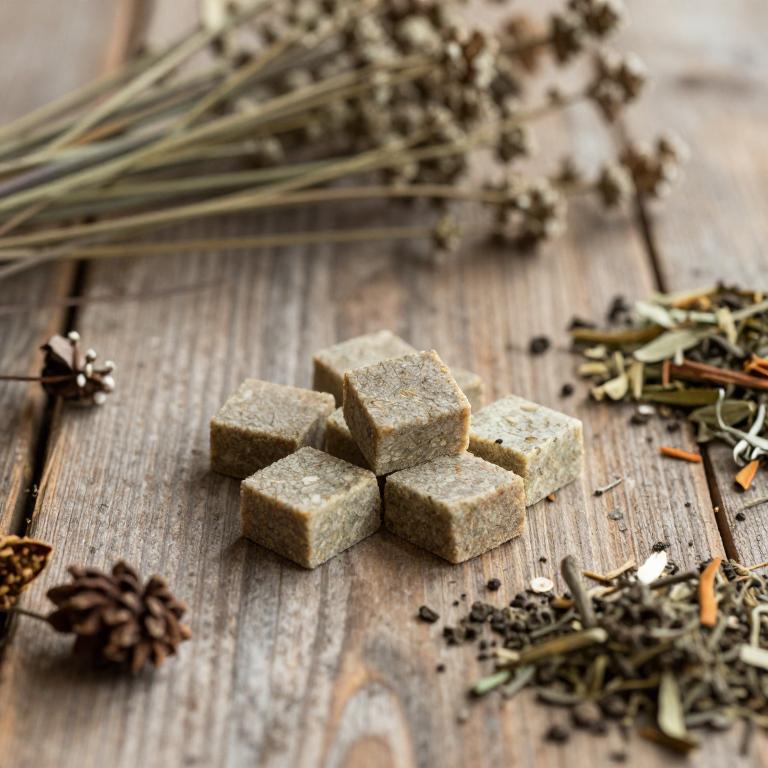10 Best Herbal Lozenges For Indigestion

Herbal lozenges for indigestion are natural remedies that incorporate plant-based ingredients known for their soothing and digestive properties.
These lozenges often contain herbs such as ginger, peppermint, fennel, and licorice, which are traditionally used to ease stomach discomfort and promote digestion. They work by calming the digestive tract, reducing bloating, and alleviating symptoms like nausea and heartburn. Unlike conventional antacids, herbal lozenges offer a gentler, holistic approach to managing indigestion.
However, it is important to consult with a healthcare professional before using them, especially for individuals with existing medical conditions or those taking other medications.
Table of Contents
- 1. Fennel (Foeniculum vulgare)
- 2. Cumin (Cuminum cyminum)
- 3. Ginger (Zingiber officinale)
- 4. Licorice (Glycyrrhiza glabra)
- 5. Peppermint (Mentha piperita)
- 6. Black pepper (Piper nigrum)
- 7. Ceylon cinnamon (Cinnamomum verum)
- 8. Basil (Ocimum basilicum)
- 9. Dog rose (Rosa canina)
- 10. Turmeric (Curcuma longa)
1. Fennel (Foeniculum vulgare)

Foeniculum vulgare, commonly known as fennel, is a herbal remedy often used in the form of lozenges to alleviate symptoms of indigestion.
These lozenges contain essential oils derived from the dried seeds of the fennel plant, which are known for their carminative and antispasmodic properties. Fennel lozenges help reduce bloating, gas, and discomfort by soothing the digestive tract and promoting the movement of food through the stomach and intestines. They are particularly beneficial for individuals experiencing mild to moderate indigestion, especially after meals rich in fats or spices.
As a natural alternative to over-the-counter medications, fennel lozenges offer a gentle and effective way to support digestive health.
2. Cumin (Cuminum cyminum)

Cuminum cyminum, commonly known as cumin, is a traditional herb that has been used for centuries to aid digestion and relieve gastrointestinal discomfort.
Cumin herbal lozenges are formulated to provide a natural and convenient way to incorporate the digestive benefits of cumin into daily routines. These lozenges contain essential oils and compounds like cuminaldehyde, which help stimulate the digestive system and reduce bloating and indigestion. The warming properties of cumin can also soothe the stomach and promote better nutrient absorption.
When used as part of a holistic approach to digestive health, cumin lozenges may offer gentle and effective relief for mild cases of indigestion.
3. Ginger (Zingiber officinale)

Zingiber officinale, commonly known as ginger, has been widely used for centuries to alleviate digestive discomfort.
Herbal lozenges made from ginger are a convenient and effective way to harness its therapeutic properties for indigestion. These lozenges work by stimulating digestion, reducing nausea, and soothing the stomach lining. The active compounds in ginger, such as gingerol and shogaol, help to ease bloating and gas associated with indigestion.
Regular use of ginger lozenges can provide natural relief for mild digestive issues without the side effects of over-the-counter medications.
4. Licorice (Glycyrrhiza glabra)

Glycyrrhiza glabra, commonly known as licorice root, has been traditionally used in herbal medicine for its soothing and anti-inflammatory properties.
Glycyrrhiza glabra herbal lozenges are formulated to provide relief from indigestion by reducing stomach inflammation and neutralizing excess acid. These lozenges contain a concentrated form of licorice extract, which may help alleviate symptoms such as heartburn, bloating, and nausea. However, long-term use of licorice root can lead to side effects like hypertension and potassium loss, so it should be used under the guidance of a healthcare professional.
Despite these considerations, many people find glycyrrhiza glabra lozenges to be a natural and effective option for managing mild digestive discomfort.
5. Peppermint (Mentha piperita)

Mentha piperita, commonly known as peppermint, is a popular herbal ingredient used in lozenges to help alleviate symptoms of indigestion.
These lozenges work by soothing the digestive tract and reducing the sensation of bloating and discomfort. The menthol in peppermint has a cooling effect that can help relax the muscles in the gastrointestinal system, promoting easier digestion. Peppermint lozenges are often recommended for individuals experiencing mild to moderate indigestion due to their natural and non-invasive properties.
They are generally safe for most adults, though they may not be suitable for pregnant women or those with certain gastrointestinal conditions.
6. Black pepper (Piper nigrum)

Piper nigrum, commonly known as black pepper, is a traditional herbal remedy that has been used for centuries to support digestive health.
When formulated into herbal lozenges, black pepper can help alleviate symptoms of indigestion by stimulating the production of digestive enzymes and improving gut motility. The active compound, piperine, is believed to enhance the absorption of nutrients and reduce bloating and discomfort associated with poor digestion. These lozenges are often made with natural ingredients, making them a safe and gentle option for those seeking natural relief from indigestion.
Regular use of Piper nigrum lozenges may contribute to better overall digestive function and comfort.
7. Ceylon cinnamon (Cinnamomum verum)

Cinnamomum verum, commonly known as true cinnamon, has been traditionally used in herbal remedies for its soothing and digestive properties.
Cinnamon verum herbal lozenges are formulated to support digestion by promoting the movement of food through the digestive tract and reducing bloating. These lozenges are made from natural ingredients, including ground cinnamon bark, and are often free from artificial additives. They can help alleviate symptoms of indigestion such as nausea, gas, and discomfort when taken regularly.
Due to their mild and pleasant flavor, cinnamon verum lozenges are a popular choice for those seeking a natural remedy for digestive issues.
8. Basil (Ocimum basilicum)

Ocimum basilicum, commonly known as holy basil, has been traditionally used in herbal medicine for its digestive benefits.
Herbal lozenges made from Ocimum basilicum are formulated to support digestion by promoting the secretion of digestive enzymes and reducing gastrointestinal discomfort. These lozenges are often used to alleviate symptoms such as bloating, gas, and indigestion due to their soothing and anti-inflammatory properties. The essential oils in holy basil, such as eugenol and methyl eugenol, contribute to its effectiveness in easing digestive issues.
As a natural alternative to conventional remedies, Ocimum basilicum lozenges offer a gentle and holistic approach to managing indigestion.
9. Dog rose (Rosa canina)

Rosa canina herbal lozenges are a natural remedy designed to support digestive health and alleviate symptoms of indigestion.
Made from the berries of the rose dogwood plant, these lozenges are rich in antioxidants, vitamins, and bioflavonoids that promote healthy digestion and reduce discomfort. They work by soothing the stomach lining and improving the efficiency of the digestive process, making them a gentle alternative to conventional antacids. The herbal formulation is typically free from artificial additives, making it suitable for individuals seeking natural solutions.
Regular use of Rosa canina lozenges can help manage mild indigestion, bloating, and heartburn, supporting overall gastrointestinal wellness.
10. Turmeric (Curcuma longa)

Curcuma longa, commonly known as turmeric, is a herbal remedy widely used for its anti-inflammatory and digestive benefits.
Turmeric lozenges are formulated to soothe the digestive system and alleviate symptoms of indigestion such as bloating, nausea, and stomach discomfort. These lozenges contain curcumin, the active compound in turmeric, which helps reduce inflammation and improve gut motility. They are often recommended as a natural alternative to over-the-counter antacids or acid reducers.
Regular use of curcuma longa lozenges may support overall digestive health and promote better digestion when taken as part of a balanced diet and lifestyle.